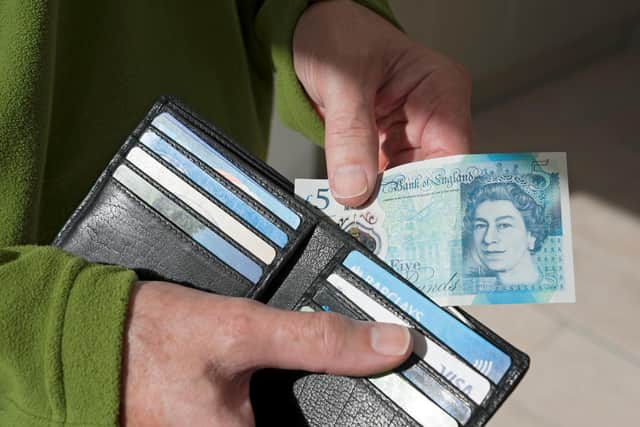Why businesses should keep accepting cash payments: David Fagleman
This timely debate is one that speaks to one of the key issues of our time, the rise of automation and digitisation, which has become increasingly relevant since the pandemic and the cost-of-living crisis.
Over the past 10 years many of us have changed our behaviour and become more digital. This is happening in different aspects of our lives, from communication (writing emails instead of letters), reading (ebooks instead of paperbacks) and shopping (online instead of high street).
Advertisement
Hide AdAdvertisement
Hide AdThese trends have grown over time, but they have accelerated in recent years due to the growth in digital services, continuing encouragement to use them, and the impact of the pandemic, which temporarily suspended most of our in-person activities and replaced them with a digital alternative.


Nowhere is this change more evident than in our banking and payment habits, where the rise in online banking, banking apps and card payments have risen at the expense of bank branches and cash. According to UK Finance, the total volume of cash transitions has fallen from 55 per cent in 2012 to 15 per cent in 2021.
This reflects the increased use in card payments for day-to-day transactions driven by the arrival of contactless payments, particularly for low value transactions that previously would have been made with cash.
However, not everyone is following the trend and many people still prefer the “old” way of doing things.
Advertisement
Hide AdAdvertisement
Hide AdRecent research commissioned by LINK, the UK’s largest cash machine network, found that at the end of 2022, around 70 per cent of people said that they’d recently used cash to make a purchase. This is a lot higher than you might expect, perhaps reflecting the fact that cash is a notoriously difficult payment method to track as its analogue nature means it doesn’t leave a record. The study also found that 45 per cent of people said that they had recently been somewhere that had not accepted, or had actively discouraged, the use of cash to make a payment. For that 45 per cent, half of them were left inconvenienced. There is an assumption that only older people use and rely on cash. This is untrue, as those left inconvenienced were from all age groups, including 16-24.
Although the UK is still a very long way from becoming a cashless society, there is no doubt that it is becoming increasingly digitised. According to Age UK, there are lots of groups who will be left behind if cash acceptance continues to fall. These include the elderly, those who have mental health conditions or those people on low incomes. All these groups find it easier to budget with cash.
The rise in digital payments is also an issue for retailers who, according to the British Retail Consortium, have seen the cost of accepting debit card payments increasing steadily since 2015.
The digital revolution is happening at a pace that sits uncomfortably with many. Ensuring that people can continue to pay with cash for essential everyday times, such as food, medicine, and public transport, as well as public services, should be supported by the government. The alternative is that more people are left behind all in the name of progress.
David Fagleman is Director of independent financial consultancy Enryo